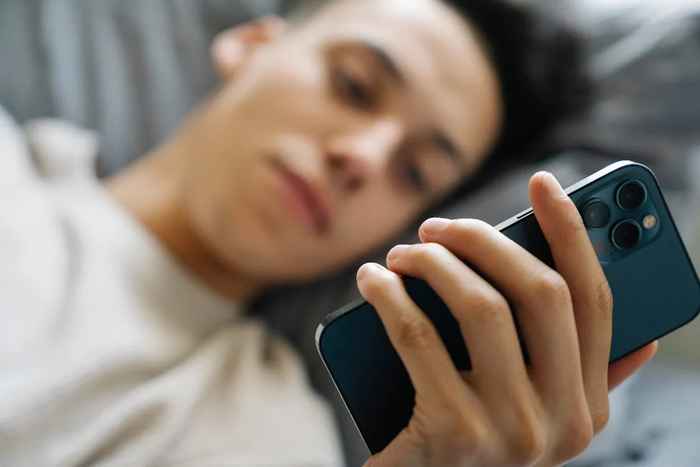Tired and distracted: Research confirms impact of social apps on young people
16 April 2024

Smartphones: left at home or in a locker
More and more schools have instituted a policy that involves pupils leaving their smartphones either at home or in their lockers. Meanwhile in society, there is increasing concern about the impact of social media and the use of smartphones on the behaviour of young people. ‘It makes sense,’ says Siebers. ‘It's a vulnerable phase in which they reject parental authority but don't yet have the discipline to make the healthiest choice.’
Justifiable concerns
And now that concern appears to be justified. The impact of social media on concentration has previously been studied remarkably little in this age group, and research relied mainly on self-reporting. Siebers has now supplemented that research with the actual activities of young people on their phones, in the form of a tracking app on the smartphones of high school students, which generated more than 750,000 activities. Combined with data from a total of 55,000 questionnaires, this gives the PhD candidate a much more complete picture of the impact of app use on concentration and sleep in young people.
Checking updates quickly and frequently
82% of young people say they are more easily distracted in the hours when they spend a relatively large amount of time on social apps. 'What was striking was that most young people keep looking at their phones quite briefly for an update from one of their social channels and then keep putting them away,' says Siebers. 'That’s not good news, because that’s exactly the pattern of use that exacerbates distraction.’
'The continuous switching of attention from the phone to something else takes a big toll on young people's ability to concentrate,' says Siebers. 77% of young people were more distracted when their smartphone use was fragmented, whereas that percentage was lower, 55%, if they spent a longer stretch on their smartphones.
Sleep and socials
The same pattern is apparent in relation to sleep. However, not all social media behaviour directly leads to worse sleep. 'Smartphone behaviour during the day has no impact on sleep.' Nor do all apps directly lead to worse sleep. 'In the case of video apps, for example, the effect is negligible. On the other hand, gaming on your phone is very bad for your sleep. And once again, use of social media apps is inadvisable,' says Siebers. Interaction is an important factor. 'It’s incredibly tempting to keep scrolling through or try again when it’s Game Over, so those young people stay awake longer, feeling agitated, when they put their phone away.'
Slam on the brakes
Siebers believes this study confirms what has long been thought in society: young people are suffering as a result of social media apps. He believes smartphone lockers and other initiatives to crack down harder on the impact of smartphones on young people are therefore by no means a luxury. 'The figures are crystal clear: the effect of social apps on distraction in young people is universal, the effect on sleep is demonstrable and young people are affected by smartphones during their school years. It would be a good idea to slam on the brakes.'
A conversation about self-regulation
At the same time, we need to have a conversation about how young people themselves can be empowered to ignore smartphones at times they need to. Siebers: 'It’s a great opportunity for young people to learn to self-regulate during puberty. When they see that they themselves are in control of their behaviour, they’ll also learn to resist other temptations.'